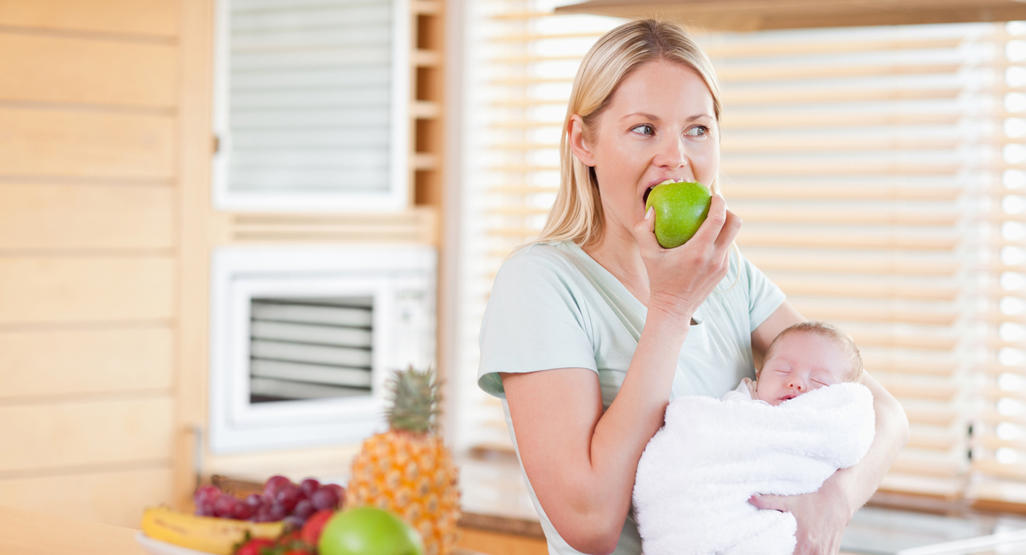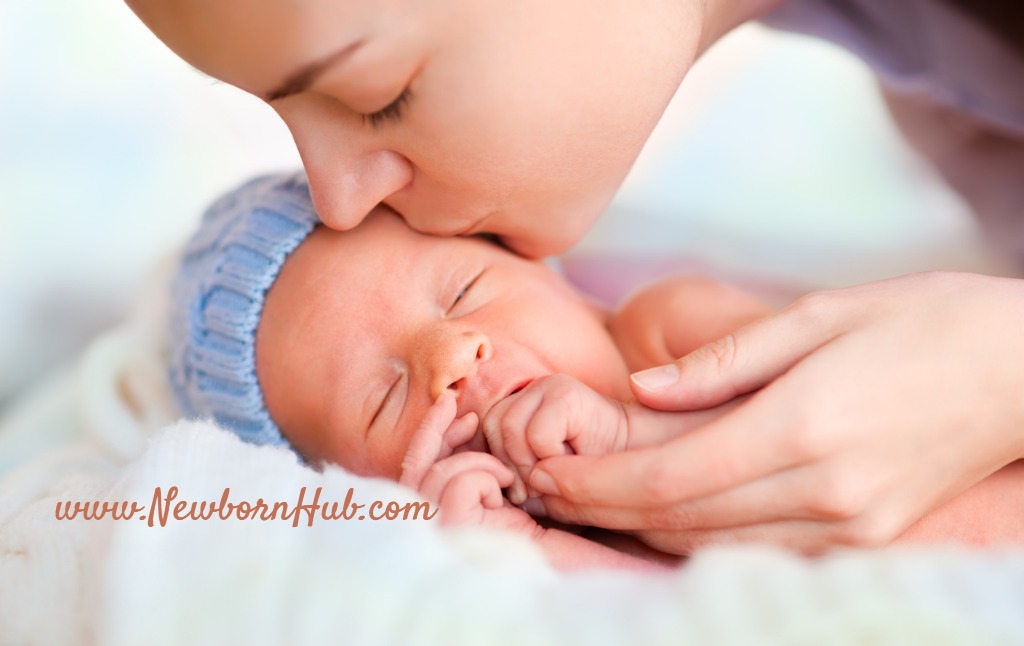- HOME
- Breastfeeding
- Foods to Eat While Breastfeeding
Foods to Eat While Breastfeeding
& foods to avoid
Wondering what foods to eat while breastfeeding? And more importantly, what foods to avoid when breastfeeding? As a breastfeeding mom, what you eat generally (some don't - more on this later) goes into your baby’s body. You need to make sure that you eat healthy and well-balanced food.
In this section:
- Foods to eat while breastfeeding
- Foods to avoid when breastfeeding
- Am I getting enough Calcium
- Do I need to eat extra for the baby?
Foods to Eat When Breastfeeding
Since your body produces milk for the baby (which is high in Calcium), you must take in lots of Calcium to make sure your bones and teeth remain strong and healthy, and so does your baby’s.
There are 5 main food groups, and you need to eat from all these food groups daily. These 5 food groups are:
- Fruit & Vegetables
- Starchy foods (foods rich in whole wheat grains will make sure you do not have any issue with your bowel movement. It is important for nursing mothers who often complain of constipation.)
- Dairy products
- Proteins
- Good fat (such as avocados, almonds, walnuts, olives, and olive oil, etc.)
While seafood is great for pregnant as well as breastfeeding women, make sure the fish you are consuming is not high in mercury. Below is a list of low-mercury safe seafood you can enjoy while breastfeeding. These seafood are FDA approved and you can have 8 to 12 ounces (which means about 2 to 3 servings of 4-ounce seafood) every week:
- Anchovies and Sardines
- Lobster (American and spiny)
- Clams, Oysters, Squid
- Scallops
- Crabs and Shrimp
- Salmon
- Tuna (canned light)
- Crawfish, Flounder
- Whitefish
- Atlantic croaker, Atlantic mackerel, Pacific chub mackerel
- Black sea bass
- Butterfish, Catfish
- Cod, Haddock
- Hake, Herring
- Mullet
- Perch (freshwater and ocean)
- Pickerel, Plaice, Pollock
- Shad, Skate, Sole, Smelt
- Tilapia, Whiting
- Trout (freshwater)
Include the following nutritious and delicious foods in your diet. You can combine them with each other in a meal so your meal is loaded with the rich nutrients that your baby (and you) need.
- Fresh fruits and vegetables: berries, apples, green leafy salads, carrots, beetroot, bell peppers (skip them if your baby feels gassy), cabbage, spinach, kale, garlic. Include fresh herbs in your diet.
- Poultry, Fish, and Meat: chicken, eggs, beef, veal, mutton, lamb, organ meats (such as liver)
- Healthy fats: avocados, olives, olive oil, coconut, full-fat yogurt
- Fiber-rich starches: potatoes, butternut squash, sweet potatoes, beans, lentils, oats, quinoa, buckwheat
- Nuts and seeds: almonds, walnuts, flaxseeds, chia seeds, hemp seeds
- Healthy snacks: dark chocolate, hummus, tofu, kimchi
Foods to eat while breastfeeding - for your own body:
There are some nutrients that your body will pass on to your baby, no matter what your diet is. This means that if you do not include these foods in your diet, your body will take the nutrients from your bones and reserves to fulfil your baby's growing demands. For this reason, you need to include the following foods in your daily diet:
- Iron: red meat, organ meat, beans, poultry, seafood, green vegetables, dried fruit
- Folate: Include leafy greens, beans, lentils, asparagus, avocados
- Calcium: milk, yogurt, cheese, cream cheese, leafy greens, legumes
- Zinc: oysters, nuts, dairy products, red meat
- Copper: nuts, potatoes, shellfish, whole grains, beans, organ meats
As mentioned above, if your intake of these nutrients is low, your body will take these nutrients from your own bone and tissue stores in order to secrete them into your breast milk. The good part is that your baby will get these nutrients but you will end up with a deficiency if you don't include these nutrients in your diet. You can always take supplements to make sure you have the right amount of nutrients for yourself as well as for your baby.
Foods to Avoid When Breastfeeding
Some food items, no matter how nutritious they sound, can result in your baby getting gassy and uncomfortable. Everybody is different and one food item that may cause your baby gas may not worry another mother. So make sure you pay attention to what you eat and drink, and how it indirectly affects your baby after the milk intake. Food items including spicy food and nightshades (eggplants, bell pepper, potatoes, and tomatoes, etc.) can cause your baby a tummy upset.
If you are into seafood, make sure you avoid eating high-mercury fish. Seafood contains the metal mercury which is passed through your milk to your baby. Excessive amount of mercury may harm your baby’s brain development and may impact the nervous system.
In some cases where mothers drink cow milk or consume its products, the baby may experience an episode of colic, rash, gas, vomiting, or diarrhea. If you are noticing any such reaction, try removing cow’s milk from your diet and see if it was the culprit.
Some babies are allergic to certain foods that the mothers take, such as peanuts and eggs. This may lead to trouble in your baby’s breathing or a rash. Contact the doctor if you see any such reaction.
Alcohol and Caffeine:
When you drink soda, coffee, tea, or any similar caffeinated drink, it can easily seep into your breast milk and then in your baby’s body. It is better not to exceed your caffeine intake to more than 2 cups of coffee, tea, or soda. Do not consume more than one alcoholic beverage per day. It is advisable not to drink alcohol and caffeinated drinks at least 2 hours before breastfeeding time.
Certain medications:
Like other food and drink items that you consume, your medication can also get into your baby’s tiny body through your breast milk. Talk to your doctor about the medicines you take regularly such as antidepressants and birth control pills. If your doctor deems it necessary, he/ she will give prescribe you a replacement medicine safer for babies.
Smoking:
We know that smoking can cause harm in the long run, and it is also a bad idea to smoke if you breastfeed your baby. Not only do the chemicals and smoke go into your milk, studies have shown that smoking also decreases your milk production. If possible, try quitting it – do it for your baby!
Avoid pacifiers and feeding bottles especially right after birth. They can confuse your baby with regards to your actual breast and can make it harder for you to breastfeed. When babies reach the age of 6 months or older, they can easily differentiate between a pacifier’s nipple and yours, so you can introduce these items later – that too if you really want to.
Am I getting enough Calcium?
You need 5 servings of milk or milk-based products such as cheese, yogurt, cream cheese, etc. If you do not consume dairy products, you can go for Calcium-fortified non-dairy milk such as almond milk and soy milk. Also, increase your Calcium intake from other food items that are rich in Calcium such as tofu, and green leafy veggies like broccoli, kale, and spinach. Broccoli can sometimes make you (and your baby) gassy so if you experience bloating after eating broccoli or your baby gets colicky, you might want to skip it.
You can always talk to your doctor if you feel you are not getting enough Calcium in your diet. Your doctor will prescribe you a Calcium Supplement that is good for nursing mothers.
Do I need to eat extra for the baby?
You need to eat around 500 extra calories each day when you breastfeed your baby. When you are breastfeeding, a lot of your diet’s nutrients such as minerals, vitamins, proteins, fats, and carbohydrates go to the breast milk. You need to make sure you are taking a diet that is high in fiber and that you are drinking plenty of water. Just to make sure your body has a good amount of nutrients, don’t forget to take your prenatal vitamins daily. Ask your doctor if he/ she has not prescribed you the supplements.
So the bottom-line is...
As they say, you are what you eat. And your newborn baby is also what you eat! Make healthy choices for your body and your baby. Now you know what foods to eat while breastfeeding and what to avoid (or minimize), make yourself a healthy meal and enjoy it with your baby!
See Also:
- How to breastfeed a newborn?
- Breastfeed vs bottle feed
- Breastfeeding and pumping
- Breastfeeding problems and their solutions
- How long should women breastfeed for?
- Breastfeeding tips
- How to increase breast milk?
- When should you not breastfeed?
- Why should you breastfeed?
- Foods to eat & foods to avoid when breastfeeding
- What accessories do I need when breastfeeding?
- Breastfeeding advantages for mothers
Return to Home page.




New! Comments
Have something to say about what you just read? Leave me a comment in the box below :)